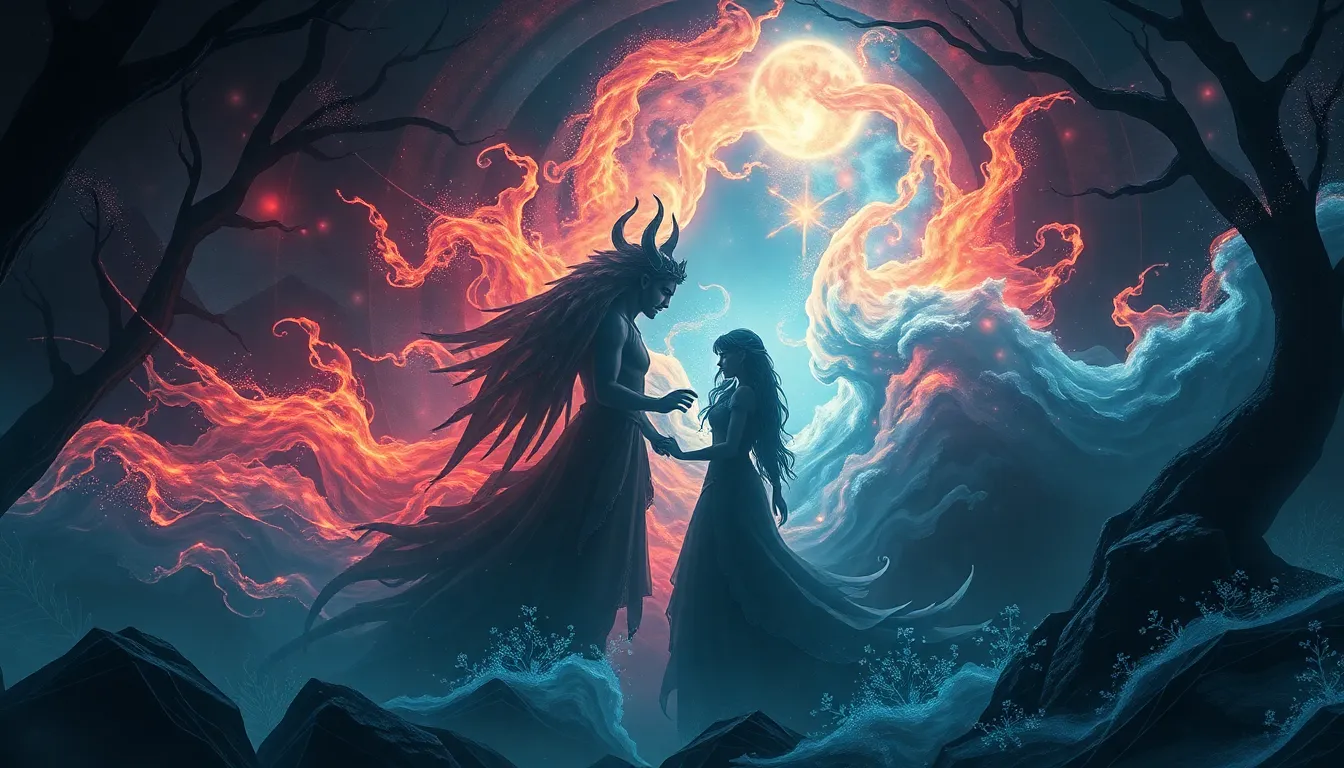The Quest for Timeless Love: Myths of Eternal Bonds
Introduction: The Allure of Timeless Love
Timeless love is often defined as an enduring bond that transcends the constraints of time, space, and circumstance. This concept captures the imagination of individuals across cultures and eras, suggesting that true love can withstand the trials of life and remain unchanging. The universal appeal of eternal bonds reflects humanity’s deep desire for connection, intimacy, and the longing for relationships that endure beyond the ephemeral nature of existence.
Historical Context: Love Through the Ages
Throughout history, love has been depicted in myriad ways, influenced by cultural, social, and philosophical movements. In ancient civilizations like Greece and Rome, love was often celebrated in poetry and art, portraying it as both a divine gift and a source of human suffering. Philosophers such as Plato explored the nature of love, proposing ideas about ideal forms and the soul’s yearning for unity.
In Eastern traditions, love has been viewed through a lens of spiritual connection, with texts like the “Bhagavad Gita” emphasizing the importance of love as a path to enlightenment. Over time, literature and philosophy have evolved, shaping our understanding of love from romantic idealism to a more nuanced appreciation of its complexities.
Cultural Myths and Legends of Eternal Love
Cultural myths and legends serve as powerful narratives that shape our understanding of love. The tale of Orpheus and Eurydice, for example, explores themes of loss and the lengths one might go to for love, while the story of Romeo and Juliet symbolizes the passionate yet tragic nature of young love.
These stories often reflect societal values and provide a framework for interpreting love’s challenges and triumphs. They remind us that love, while deeply personal, is also a shared human experience that resonates across time and culture.
The Psychology of Romantic Attachment
Understanding the psychology behind love provides insight into its enduring nature. Attachment theory, developed by John Bowlby and Mary Ainsworth, suggests that early relationships with caregivers shape our future romantic attachments. Secure attachments lead to healthier relationships, while insecure attachments can result in challenges.
Furthermore, psychological perspectives reveal that our need for love and connection is rooted in our biology, influencing our behaviors and choices in romantic relationships. The interplay of hormones like oxytocin and dopamine reinforces bonds, making love a profound psychological and emotional experience.
Spiritual and Religious Perspectives on Eternal Love
Love holds significant meaning in many spiritual and religious contexts. In Christianity, divine love is often exemplified through the unconditional love of God, which serves as a model for human relationships. Hinduism, with its emphasis on the cyclical nature of life and reincarnation, portrays love as a transformative force that transcends lifetimes.
Buddhism teaches about the importance of compassion and loving-kindness, highlighting the idea that love is not just a personal emotion but a universal connection that fosters peace and understanding among all beings.
The Role of Time in Romantic Relationships
Time plays a crucial role in shaping romantic relationships. Our perceptions of time can influence how we experience love: fleeting moments can create intense passion, while long-term relationships often require patience and commitment. The dynamics of love can shift as partners grow and change over time.
Additionally, aging can impact companionship, bringing both challenges and opportunities for deeper connection. As couples navigate life’s changes together, they have the potential to cultivate a richer, more profound love that evolves with them.
Modern Interpretations of Timeless Love
In contemporary literature and media, the theme of timeless love continues to resonate. Films, novels, and songs often depict love as an everlasting force, inspiring audiences to believe in the possibility of enduring connections. The representation of love in media shapes cultural narratives and influences expectations in relationships.
However, the rise of technology and social media has transformed how we connect. While these platforms can facilitate relationships, they also present challenges, such as superficial connections and diminished face-to-face interactions. Balancing technology with meaningful engagement is essential for cultivating lasting love in the modern world.
Challenges to the Concept of Timeless Love
Despite the romantic ideals surrounding timeless love, modern relationship dynamics present significant challenges. High divorce rates, infidelity, and changing societal norms have altered perceptions of lasting love. Many individuals now question the feasibility of eternal bonds in a fast-paced, ever-changing world.
Societal changes, including shifting gender roles and increased individualism, further complicate traditional notions of love. Navigating these challenges requires adaptability, open communication, and a willingness to redefine what love means in contemporary society.
Cultivating Timeless Love in the Modern World
While challenges exist, there are practical strategies for fostering timeless love in today’s world. Consider the following tips:
- Prioritize Communication: Open and honest dialogue strengthens connections and fosters intimacy.
- Build Trust: Trust is the foundation of any enduring relationship, requiring transparency and reliability.
- Create Shared Experiences: Engaging in activities together builds memories and reinforces bonds.
- Practice Forgiveness: Letting go of grudges is essential for maintaining love through challenges.
By implementing these strategies, couples can nurture their relationships and work toward a love that withstands the test of time.
Conclusion: The Enduring Quest for Timeless Love
The quest for timeless love is a universal human experience, rich with myths, realities, and complexities. From ancient legends to modern relationships, the stories we tell about love reveal its significance in our lives. While the challenges of contemporary society may complicate the pursuit of enduring bonds, the desire for connection remains a powerful force.
Ultimately, love is an essential element of the human experience, shaping our identities, relationships, and understanding of the world. As we navigate the complexities of love, the quest for timeless bonds continues to inspire and connect us across generations.



